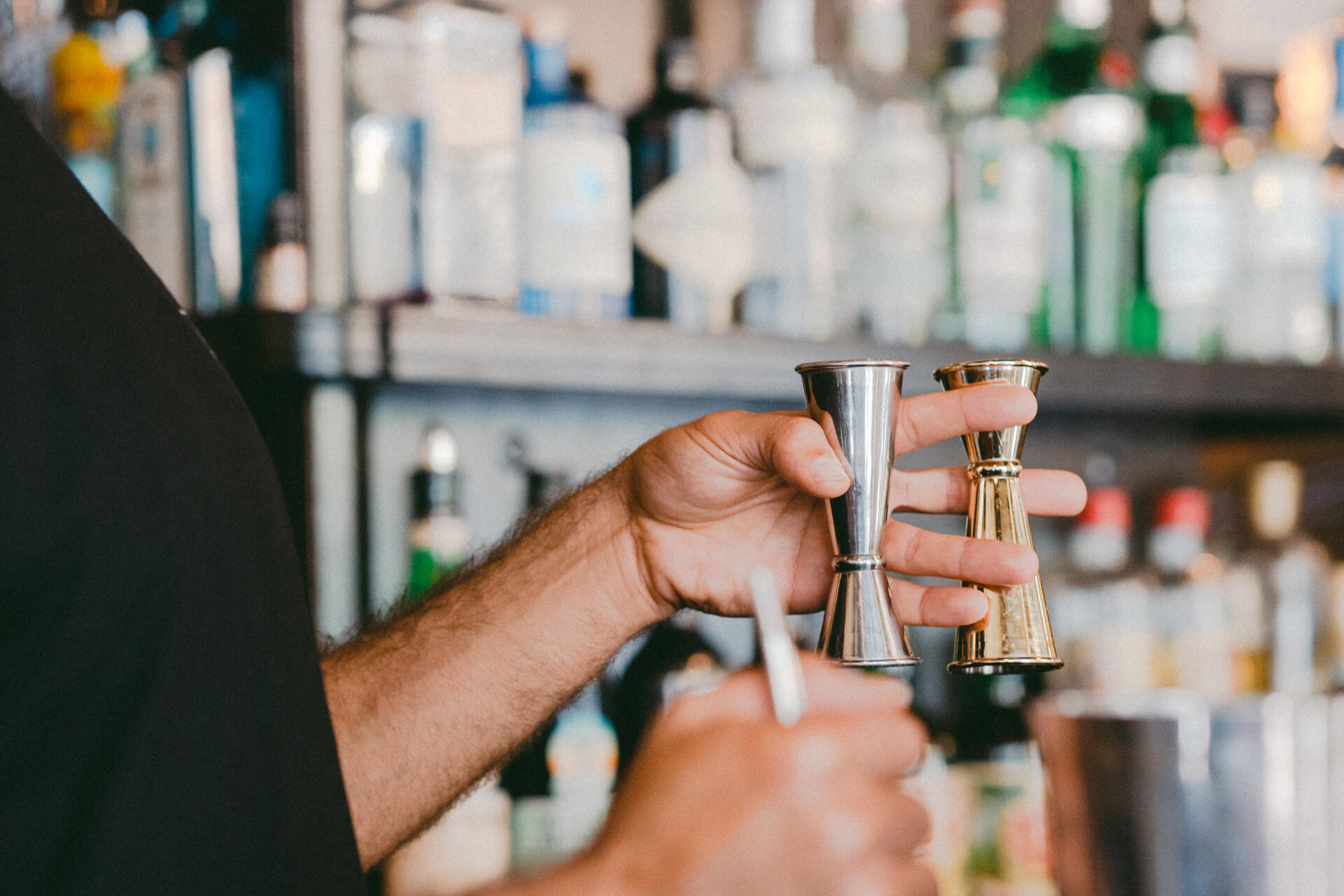
The professional world of bar people, for all its complexity, can be divided into two categories:
The first – professionalism
The second – human relations
Under the “professional” category is all the professional/technical knowledge that can be translated behind the bar into value. From general information, to specific anecdotal knowledge. Did you do a bartending course? Professional knowledge. Train with us at Artender? Professional knowledge. A wine course at WSET? Professional knowledge. A distillery tour in Scotland? Professional knowledge. Spirits, cocktails, beer, bar equipment, work technique, efficiency and aesthetics, wine, rum, production procedures, history, liqueurs, economics, business, and it only goes deeper.. There is really no end to the knowledge that can be acquired, directly or indirectly related to bar and drinking culture both global and local. It’s a bottomless pit, and it’s a good thing. Alcohol in all its shades and types, at one level or another, is part of human culture: When a bartender opens an ancient book on cocktails, tours the winery of his grandmother’s 88th birthday, tries a recipe he dreamed of the night before. Every bit of information acquired from learning or experience, whether it originates from internal motivation or external demand – makes him a “valuable” professional.
The second category is human relations, and it’s much less “learnable”. All the courses in the world won’t help a person who doesn’t love interaction with intent to become a man of the people. Empathy and sympathy, a listening ear, a smile, friendly eyes, small gestures, the ability to see the situation through the eyes of the client. All of these belong in the world of emotional intelligence, and it’s incredibly difficult to acquire them.
Human relations, aren’t only manifested in front of customers and when providing service… but also, and perhaps mainly – inside the system. Dynamics between bartenders on shift and the chemistry created in the team, these are extremely critical components (which aren’t often talked about) to the success of the business whose business is “hospitality.”
An evening packed with customers, when dozens or hundreds of people crowd around the bar, and in front of them stand 2-4 bartenders, however skilled they may be, the dynamics between them during service is critical to the customer’s experience. In this aspect, bartenders should be team players, and it’s very difficult to be on a team with someone whom the dynamics don’t work. This isn’t about black and white either, in which you’re either Mother Teresa, nice and loved by the whole world, or alternatively you are a supervillain who, apart from Goebbels, no one would get along with. The dichotomy I hate so much cannot exist here. People are people, and reality is complex. Always.
We teach a “wild language,” which means we teach to work in a certain way, in a certain language, in our language. Similar to other languages, our language is also built from letters and words (drills), which build sentences (sequences, order of actions), which come to describe ideas (cocktail/s). Our language is “professional knowledge”. It can be learned, and it can be taught. together and alone. With a guide or digitally. But like any language, it takes time, it’s directly related to patience, and it can (and should) be the connecting factor between people who speak it, the community.
People who speak our language behind the bar are able to generate lots of value for themselves, their customers, their employers, and their colleagues, those who join them side by side, even if they do not necessarily speak the language. Here, the required ability belongs in the “human relations” category, because if they “overshadow” the other through their skills, third can result in negative dynamics.
This sensitivity to recognize, the ups and downs of your friends at the bar, to know how to synchronize your aesthetic/technical abilities, however impressive they may be, with the “team” dynamic. This very important ability, which can be summed up in the following sentence: “not to produce antagonism”. This ability is actually a basic, extremely important condition for those who want to know how to blend in our language. Because language can connect, but also separate. And hence it’s very important to emphasize the things that we cannot teach, and to notice that the people who learn to be ARTENDERS approach the craft with the right attitude, and produce with their own hands a positive value, not a negative one.
We must not under any circumstances be perceived as condescending or arrogant towards those who join us, this will miss the point completely. We must not be portrayed as strict in front of our customers. Our starting point must be humble, certainly and surely as service providers, but also towards our colleagues and the industry.
Theres no way to teach human relations, but it’s important we make sure to let them lead us, when we work in our language in front of the customers and especially when we teach and spread the language to other bartenders. These values are part of the language. They are a tool and there is no way to speak the language without it.
I will summarize the point in a sentence:
Learning to be an ARTENDER is tremendous professional decision, but excellent human relations are required in order to succeed in bringing this professional knowledge to the forefront.